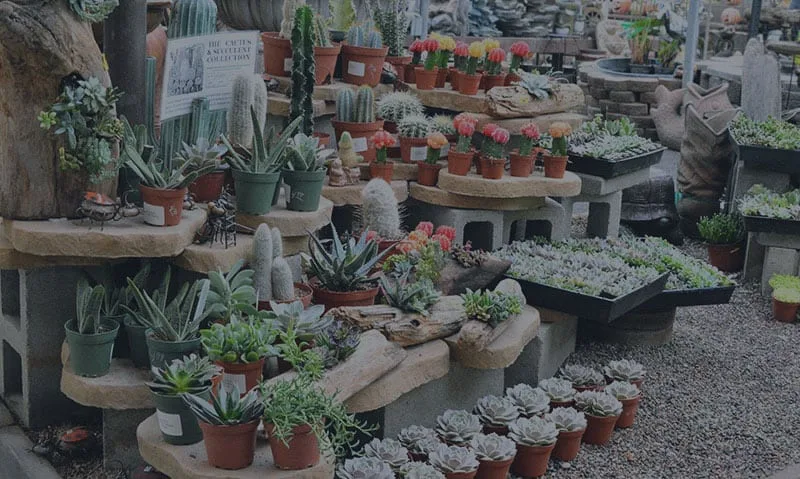Newsletter Articles
Common Fall Pests and How to Keep Them Out of Your Garden
Written by Kelsey W.
Residents of Southern California enjoy gorgeous temperatures for much of the year, and fall represents one of the best seasons for outdoor activities. Unfortunately, residents must also deal with pests like leftover mosquitos from the summer and annoying bugs that enjoy infesting your garden.
While it’s true that insects represent a vital part of the planet’s ecosystem, they also cause problems for plant and garden owners throughout the Southland. With the balmy and slightly cool weather in Socal, many pests remain active throughout the fall.
Just as the summer fleas start to disappear and the mosquitos make their last stand before winter, pests like stink bugs, mites, and aphids start to destroy outdoor gardens and wreak havoc throughout the fall.
Mites & Aphids that Eat Your Chrysanthemums
At a certain point, the trees start to lose their leaves, and plants enter a dormancy stage, but not chrysanthemums. These beautiful flowering plants are a popular sight throughout Southern California, and homeowners and apartment dwellers commonly display them on porches and balconies.
Chrysanthemums are relatively resistant to most pests, but they can have problems with aphids and mites. If your flowering chrysanthemum attracts these pests in the fall, you might find that they migrate to your other potted plants and your in-ground garden when they’re finished snacking on the chrysanthemum.
Unfortunately, aphids have a habit of growing wings in the fall, which means they’re capable of getting to your other plants even if you quarantine your chrysanthemum away from your other plants. If the aphids begin to overwhelm the chrysanthemum, you might find that they take flight and head to your other plants.
Buying your plants from a reputable garden center is helpful for making sure you don’t bring an infested plant into your home, but always inspect your plants regularly because you never know when bugs may invade, even in the autumn.
Preventing mites & aphids in the fall:
There’s no reason to say “no” to chrysanthemums because they might bring mites or aphids to your home. Keep a close eye on the plant, and treat it immediately if you find any bugs. Summit Year-Round Spray Oil is an excellent option for controlling aphids. Captain Jack’s DeadBugs is a superb spider mite killer.
Stink Bugs That Decimate Your Fruit Garden
The official start of the fall season in September brings to mind football games, pumpkin spice lattes, and shorter days, but the temperatures don’t always fall as quickly in Southern California as they do in other locales.
Sometimes it’s 90 degrees in December, and occasionally it dips to 40 degrees in September. You just never know what the weather might do. When hot summer temperatures decide to stick around through September and into October, you might find yourself dealing with some heat-loving pests eating through your second garden harvest.
Those delicious tomatoes you’re growing in the backyard? They’re almost ready for the late summer/early fall harvest. Unfortunately, stink bugs are coming for your tomatoes, too! Stink bugs started to appear throughout California about a decade ago, and the brown marmorated stink bug population has grown significantly since then.
Dealing with stink bugs:
If you have a backyard garden with vegetable flowers or fruits like tomatoes, look out for stink bugs. They don’t really eat the stems or leaves, but they’ll plow right through your fall fruit harvest. Stink bugs aren’t poisonous; simply remove them by (gloved) hand from the plants and drop them into a cup of water mixed with dish soap and white vinegar. You can also use Bonide stink bug traps as a preventative measure.
Slugs & Snails That Invade Your Gardens
Slugs become pretty prolific in their egg laying in the late summer and early autumn. With warm temperatures sticking around well into October most years, slugs are a concern for anyone with plants that drop their leaves in the fall. Slugs love finding hiding places in old leaf piles, and a large crop of slugs can cause some significant damage to a garden.
One of the easiest ways to prevent slugs from taking up residence in your garden is to keep the ground free of old, fallen leaves and decaying vegetation. You might consider composting your old leaves and cuttings in a compost bin for use next year. The green container that the trash truck picks up each week is also a solid option for getting the old plants and fallen leaves off your property. If you already have a population of slugs and want to get rid of them, Sluggo Plus is an excellent slug fighter.
Snails are another annoying pest that, while not really active in the fall, can become quite burdensome in the spring when left alone. Snails take the opportunity to lay eggs in the fall, so it’s best to remove them promptly whenever you find them in the autumn, so you don’t greet next year’s spring with a whole crop of destructive snails.
Creating an inhospitable environment for slugs:
A clean, well-tended garden is not attractive to a slug looking for a dark, damp pile of leaves in which to hide. Keeping your garden clear of decaying plant matter can help you avoid getting too many slugs, which can overwhelm your plants. Keep an eye out for snails at night. They’re easiest to find when it’s dark and whenever SoCal experiences a few days of humid weather.
Spiders Love the Fall
A common house spider shouldn’t cause serious concern, and many of the arachnids you might find in your garden actually eat the insects that attack your plants. In other words, spiders have a beneficial purpose in your garden, as well as in your home, where they do their part to take care of annoying insects.
For example, black and yellow garden spiders, also known as orb-weaver spiders, generally ignore humans and eat some of the most annoying insects around, like gnats and mosquitos. You may find it beneficial to leave spiders alone when you see them in your California lilac plant because they’ll help you get rid of insects that may harm your garden.
However, it’s essential to remain on guard in the autumn when you’re tending to your garden because some dangerous spiders become rather active in the fall. In September, it’s not uncommon to see black widows, brown widows, and brown recluses around the homes of Los Angeles and Orange County.
Black widows and brown recluses have a reputation for hiding in the far recesses of the garage or in wood piles, but they’re also keen to make a home in your shed. If you regularly pull gardening tools in and out of the shed, avoid reaching into dark corners without gloves. Always shine a light on the area, too, to make sure a venomous spider isn’t hanging out in the cradle of your garden spade.
Your fall solution for spiders:
In many cases, it’s best to leave them alone unless they’re a dangerous spider capable of killing children and pets, like black widows. A pest control service is the best way to control spider populations. Try to avoid completely eradicating your spiders. Just take care of the dangerous ones, and they might help your garden in the fall rather than harm it.
Keep a Lookout for These Pests Every Season
You’ll need to remain vigilant throughout the fall against pests like aphids and spiders, but you’ll also need to examine your plants for pests that can attack in the spring, summer, and well into the fall. If you have some beautiful ornamental flowers in your garden, watch out for whiteflies, which may also attack plants like peppers and tomatoes.
Take a bottle of Monterey garden insect spray to the whiteflies to get rid of them quickly. Check all the plants in your garden for whiteflies because these pests can spread rapidly. Consider planting natural repellents like basil, chives, or dill to keep them away.
Another pest to remain on the lookout for throughout the fall are scales, which can harm your plants to the point you have no choice but to prune the leaves where you find them. Inspect your plants regularly, and if you see those small brown lumps on your plants, immediately use All Seasons oil spray from Bonide.
If you wait too long and allow the scale insects to form hard shells, insecticides are no longer effective in treating your plants, and pruning might be the only answer. You can use your All Seasons spray as a preventative measure, too, after you’ve rid your garden of a scale infestation.
A final pest that all Southern California residents need to watch out for in virtually every season is the destructive mealybug. These tiny white insects feed on the juices of your plants, and they’re particularly attracted to well-tended gardens with recently fertilized plants.
You can use your Monterey garden insect spray to deal with the mealybugs, but it’s essential to remain vigilant against a re-infestation. They’re awfully good at hiding and coming back with a vengeance. If your plants are strong enough, a good blast of water on the leaves can help keep mealybugs away after you’ve treated your garden.
Keeping Fall Pests Away
You never know what the weather might bring in the fall in Los Angeles, which means you can’t simply rely on the season to tell you what pests to avoid. If you regularly water, feed, and tend to your garden plants, you might actually have a more difficult time keeping the pests away, even in the colder months.
Bugs want delicious, healthy flowers, stems, and foliage, and there’s nothing more delectable than a healthy plant. Don’t assume you can put your pest-control activities on hold once the fall rolls around.
Keep an eye out for destructive pests in the fall, just as you would throughout the summer. Don’t let a colony of invasive bugs make a home in your garden while you’re not looking. You might find they’ve completely taken over by next spring!
Do you like what you see? Sign up for our weekly newsletter to get content like this every week!


